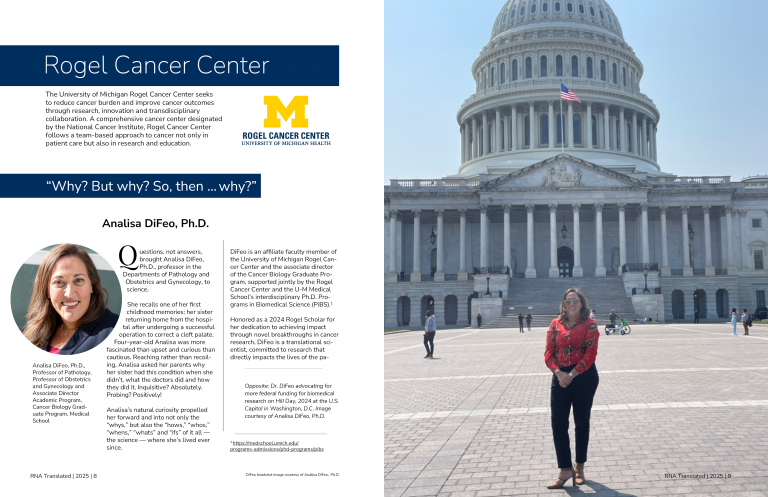Collaboration is Key at Upcoming RNA Symposium (Michigan Medicine Headlines)
Michigan Medicine faculty and staff will soon have the opportunity to learn more about one of the newest — and most innovative — fields of medical research.
The second annual U-M Center for RNA Biomedicine symposium takes place on Friday, March 31 at various sites across campus. It will draw national leaders from the scientific, medical and engineering communities to focus on “RNA in precision medicine.”
The overall aim of the symposium is to spur collaboration across disciplines, which fits in seamlessly with the goal of the U-M Center for RNA Biomedicine, which was created in 2015.
The center is comprised of 144 faculty members, 70 percent of whom come from the U-M Medical School, with the rest coming from the U-M Department of Chemistry or the School of Public Health. All members work in fields that focus on RNA — the molecule present in every cell that helps decode and express an individual’s genes.
“Researchers tend to be in their own silos as they work in the lab,” said Nils Walter, Ph.D., professor of biological chemistry and co-director of the RNA Center for Biomedicine. The other director is Mats Ljungman, Ph.D., professor of radiation oncology.
“The findings somebody discovers in one lab is not always accessible to the researcher right down the hall,” Walter said. “So we try to help further the university’s initiative of tearing down those silos and bring experts together from all parts of campus — and all parts of the world.”
The symposium, which will be highlighted by five keynote addresses throughout the day, is just one way the center spurs collaboration.
It also holds seminars on campus every two weeks where researchers can share progress of their ongoing inquiries and funds pilot research grants that require two or more participants.
“Collaboration is so important,” Ljungman said. “Whether you bring the perspective of someone directly involved in RNA research or the perspective of someone in clinical and patient care — every viewpoint is critical to the understanding of science and the understanding of what a patient ultimately needs.”
If you are interested in attending the upcoming symposium, click here to register.

